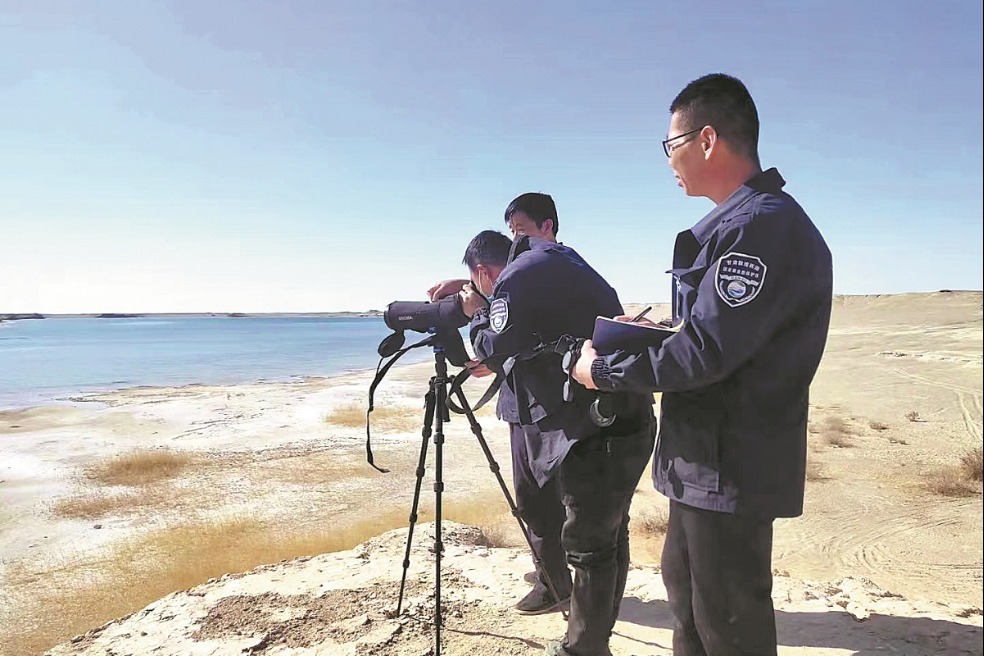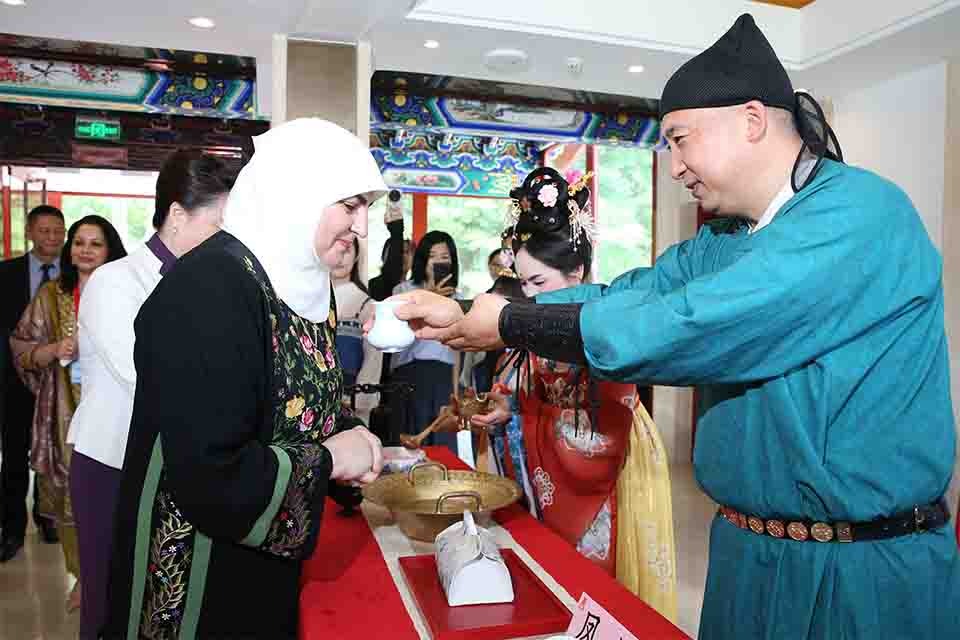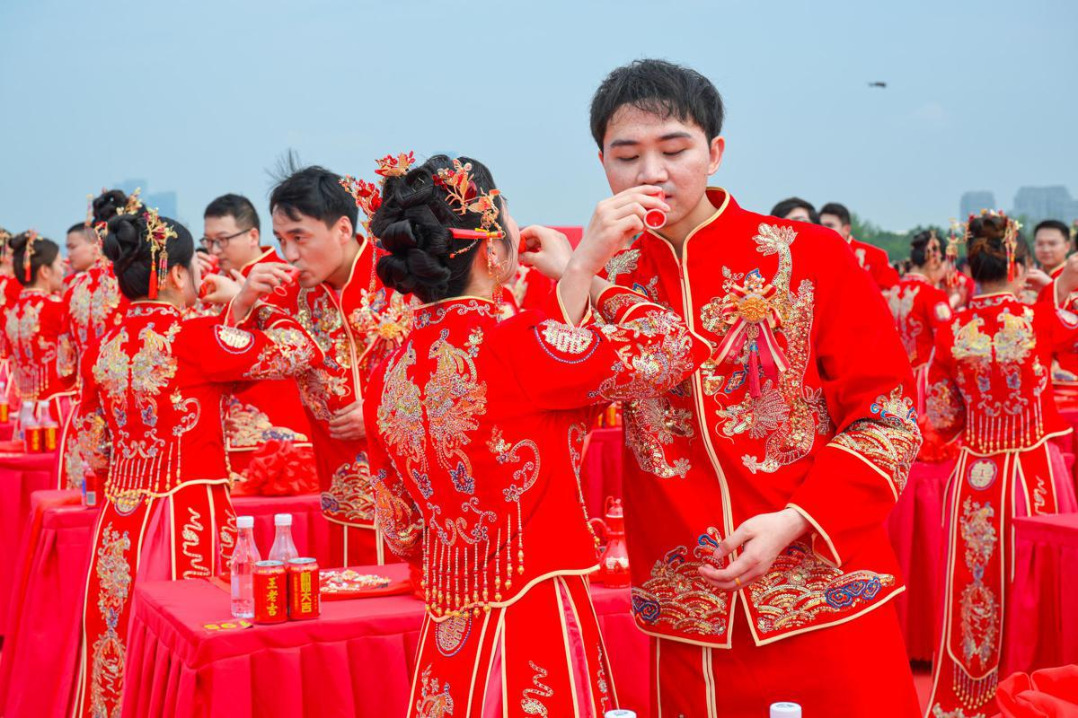No booze, no bouquets: China tightens frugal code for officials

BEIJING -- No booze, no banquets, no bouquets. China has barred alcohol, luxury dishes, and cigarettes from official meals, part of a sweeping crackdown on extravagance in public life. Government cars must forgo flashy upgrades, and meeting rooms must be free of ornamental plants and fancy backdrops.
The new rules, set out in the newly revised Regulations on Practicing Thrift and Opposing Waste in Party and Government Organs, are the latest effort by China's top leadership to rein in official perks and promote restraint.
First introduced in 2013 as a follow-up to the Party's landmark eight-point rules, an initiative launched in late 2012 to curb official misconduct and restore public trust, austerity guidelines were reaffirmed this May amid a broader campaign to reinforce discipline and compliance across the Party's 100 million members.
These updated guidelines set out more detailed rules than ever before for Party and government officials -- targeting public funds, official travel, receptions, vehicle use, meetings, and office space.
Extravagant banquets and heavy drinking were once fixtures of official life in China, customs so entrenched that phrases like "no banquet is complete without alcohol" and "business is done over drinks" became part of the vernacular. But such excesses, long resented by the public, have since increasingly come under scrutiny.
As part of a renewed push for ensuring discipline, China has now imposed a sweeping ban on alcohol at official receptions, while cigarettes and luxury dishes are also off the table.
Analysts said the ban is unlikely to meaningfully affect the industry of baijiu, a fiery Chinese liquor once a staple at government banquets.
Xiao Zhuqing, an industry expert, noted that since the rollout of the Party's eight-point rules just over a decade ago, government-related consumption of baijiu has shrunk considerably. Today, official purchases account for less than 5 percent of the market, limiting the new regulation's impact on the sector.
Excessive drinking not only erodes the image of government officials but can also end in tragedy. In a recent case that drew national attention, a county-level official in Central China's Henan province died after consuming alcohol at a midday banquet during a training seminar in March. Nine other officials present at this banquet were later disciplined, demoted, or dismissed.
Under the new rules, officials on domestic trips are barred from accepting cash gifts, souvenirs, or local specialties. For overseas trips, private jet travel is off-limits, while officials are no longer allowed to add extra stops or extend their stays abroad without prior authorization.
Officials are also barred from using public cars for private errands or claiming personal vehicle expenses from public funds. These new rules call for government fleets to prioritize new energy vehicles, part of a wider push to reduce emissions.
Party and government bodies are under orders to trim back meetings to only what is essential. Gone are the days of lavish conference setups -- this means no floral arrangements and no elaborate staging. Holding official gatherings at scenic resorts is strictly forbidden.
The new rules have received largely positive feedback online. Wang Xuming, a scholar and retired official from the Ministry of Education, praised them as "detailed and pragmatic" on microblogging site Weibo.
Grassroots officials have also voiced their support. Some have long borne the health costs of official banquets, such as fatty liver and high blood pressure, widely seen as occupational hazards in a work culture where "drinking twice a day felt like part of the job."
As part of its austerity drive, China's central government has been steadily trimming its public expenses on official receptions, vehicles, and overseas travel for years.
The 2025 budget includes 6.12 billion yuan (about $851.7 million) for such expenses, down 322 million yuan from last year. Reception spending alone is capped at 302 million yuan, 13 million less than in 2024.
The savings from reduced official spending, according to the regulations, will be redirected toward development priorities and public welfare.
As China continues its campaign against official extravagance, the once-routine perks of public office, including opulent banquets and taxpayer-funded junkets, have quietly receded.
The government's austerity push is rippling through society at large. Frugality has begun to replace excess as a social value. Restaurants are downsizing portions -- and it has become common for diners to take leftovers home.
This culture shift extends to major life events. Costly wedding and funeral banquets, once seen as obligatory displays of status, are giving way to simpler, more modest affairs, reflecting a broader embrace of restraint inspired from the top down.
- No booze, no bouquets: China tightens frugal code for officials
- Heavy rainfall causes waterlogging in Central China's Hunan
- China to add 23 vocational universities
- China launches crackdown on online defamation, extortion targeting businesses
- Firefighters rescue 82-year-old man who went missing in deep mountains
- New measures boost Guangzhou airport development





































